Moscow Region Camp Aims to 'Man Up the Boys'
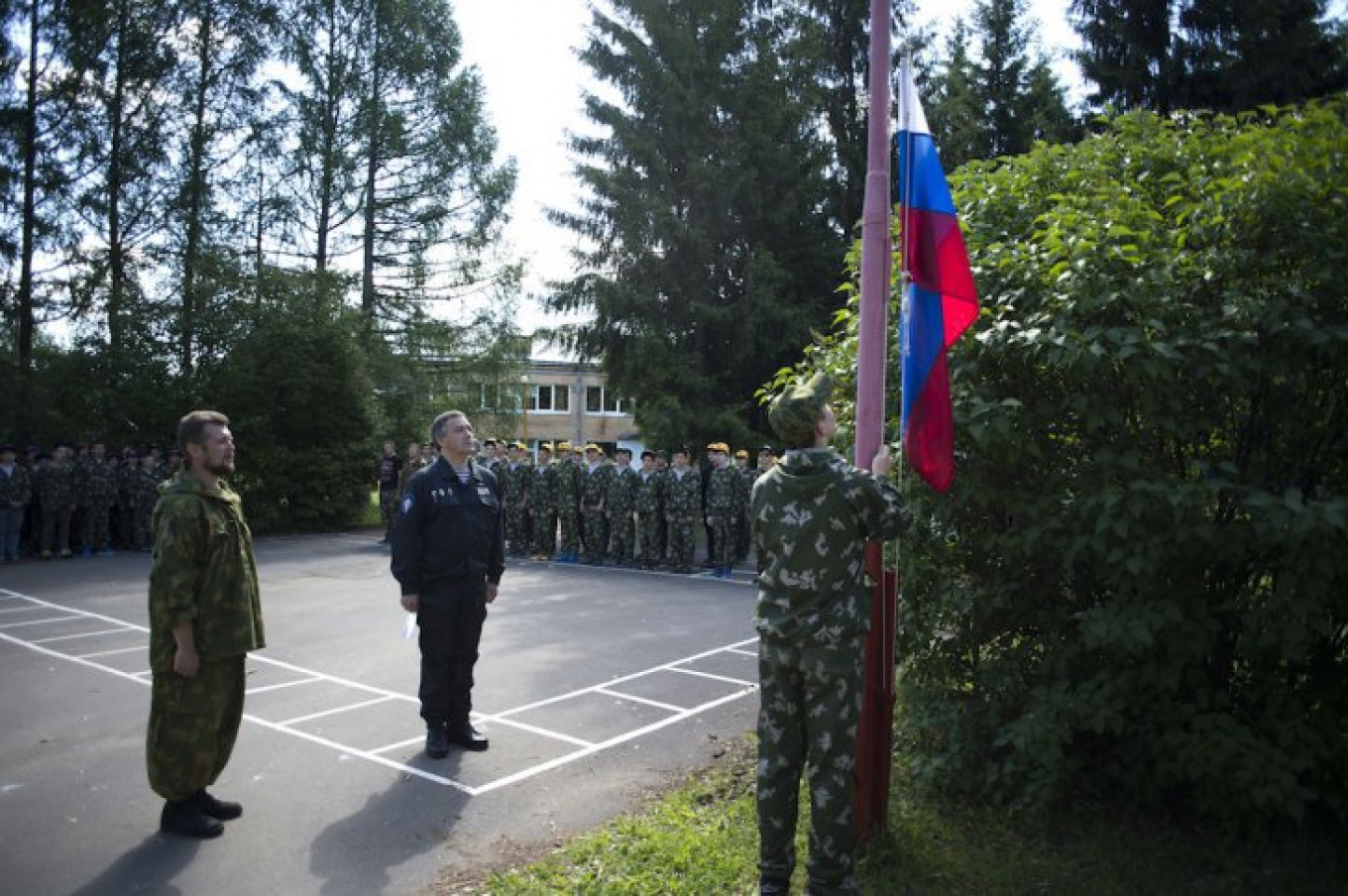
The day starts at 8:00 a.m. and every morning just after breakfast the children and instructors gather to raise up the Russian flag while singing the country's national anthem.
For 21 days the Rodina summer camp, which is located in a southern military training base in the Moscow region, conducts a special military camp for 160 young people aged between 12 and 17 years old. Their instructors, 60 in total, range from former Spetsnaz special force soldiers, professors and psychologists to sportsmen — and even a former KGB agent.
According to the founder of the camp, Gleb Yun, a Russian businessman and professional jiu-jitsu fighter, the main goals of the camp are "to man up the boys and keep them outside hooligan groups by teaching them the values of a real man: responsibility, discipline, character and masculinity." He stresses the fact that while at the camp the group will also receive courses in economics and politics to drill in their citizen values.
Photographs by The Moscow Times' Pascal Dumont. Reporting by Kerttu Matinpuro.
For 21 days the Rodina summer camp, which is located in a southern military training base in the Moscow region, conducts a special military camp for 160 young people aged between 12 and 17 years old. Their instructors, 60 in total, range from former Spetsnaz special force soldiers, professors and psychologists to sportsmen — and even a former KGB agent.
According to the founder of the camp, Gleb Yun, a Russian businessman and professional jiu-jitsu fighter, the main goals of the camp are "to man up the boys and keep them outside hooligan groups by teaching them the values of a real man: responsibility, discipline, character and masculinity." He stresses the fact that while at the camp the group will also receive courses in economics and politics to drill in their citizen values.
Photographs by The Moscow Times' Pascal Dumont. Reporting by Kerttu Matinpuro.
Pascal Dumont / MT
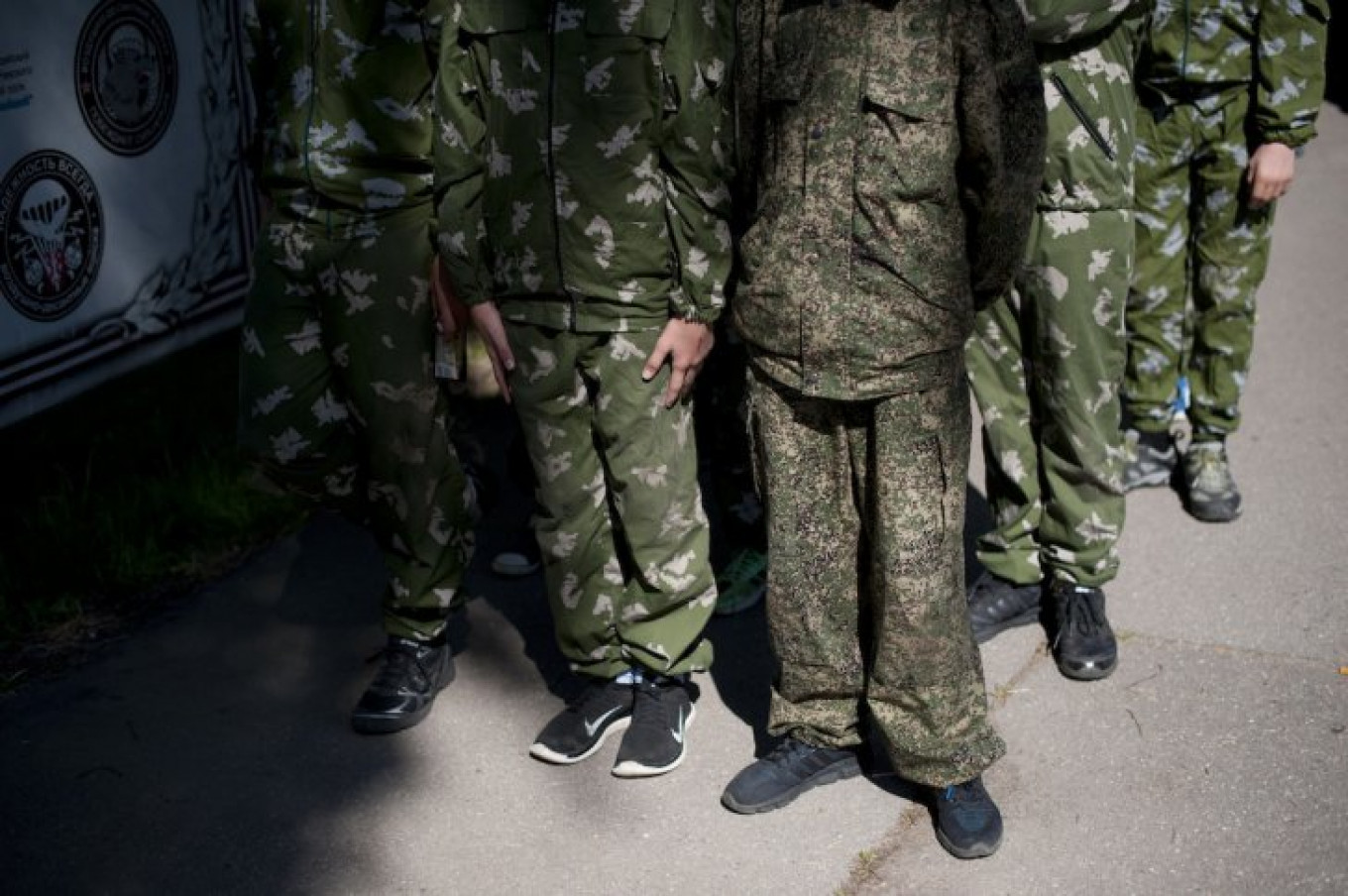
"Our aim is to teach kids to respect soldiers and understand what the military service is, not to prepare them for war. No one serves in the army in order to fight, but in order to maintain the peace" stresses Gleb Yun, the main organizer of the camp.
Pascal Dumont / MT
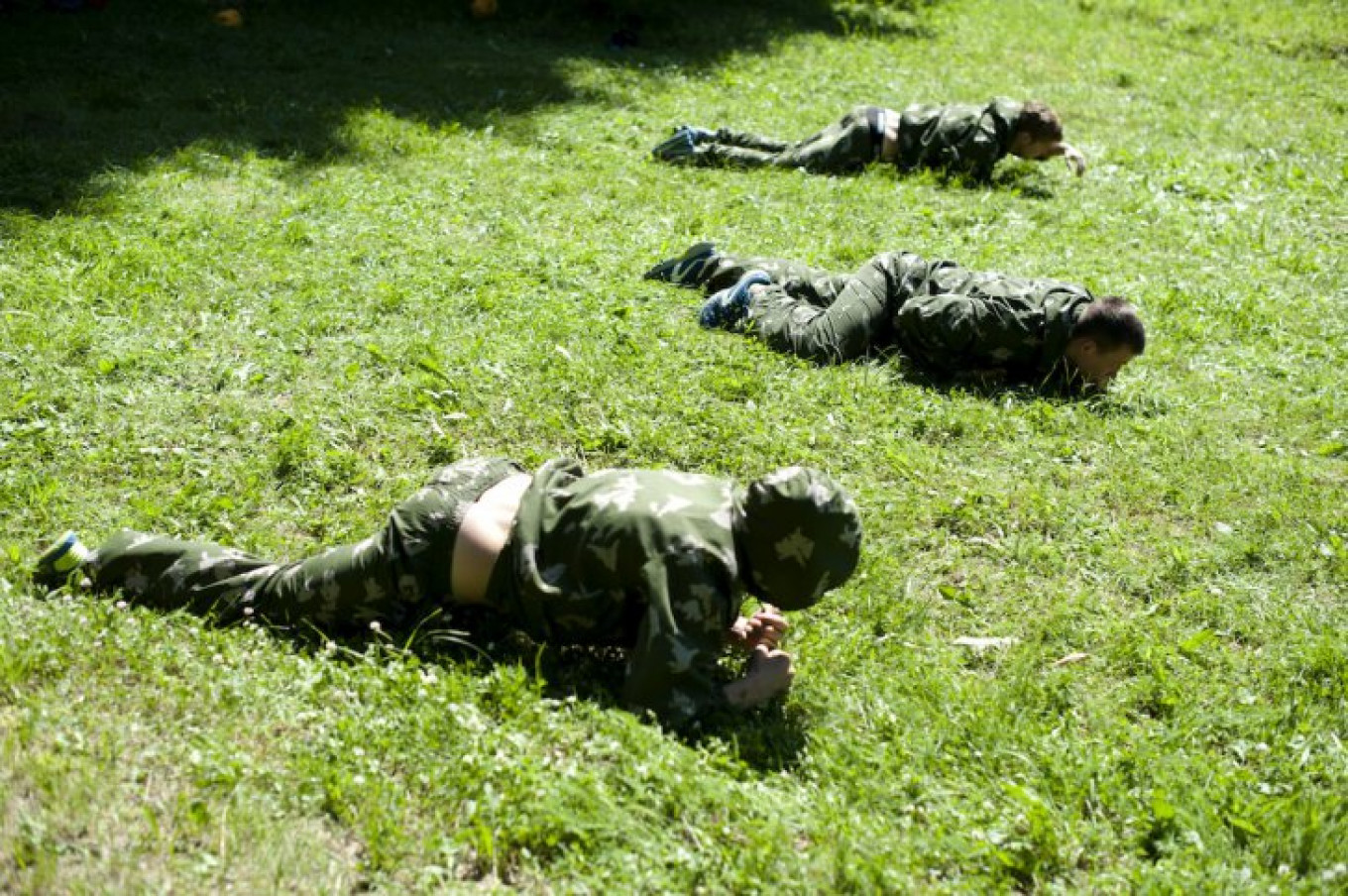
The camp mixes sport activities and tactical military operations.
Pascal Dumont / MT
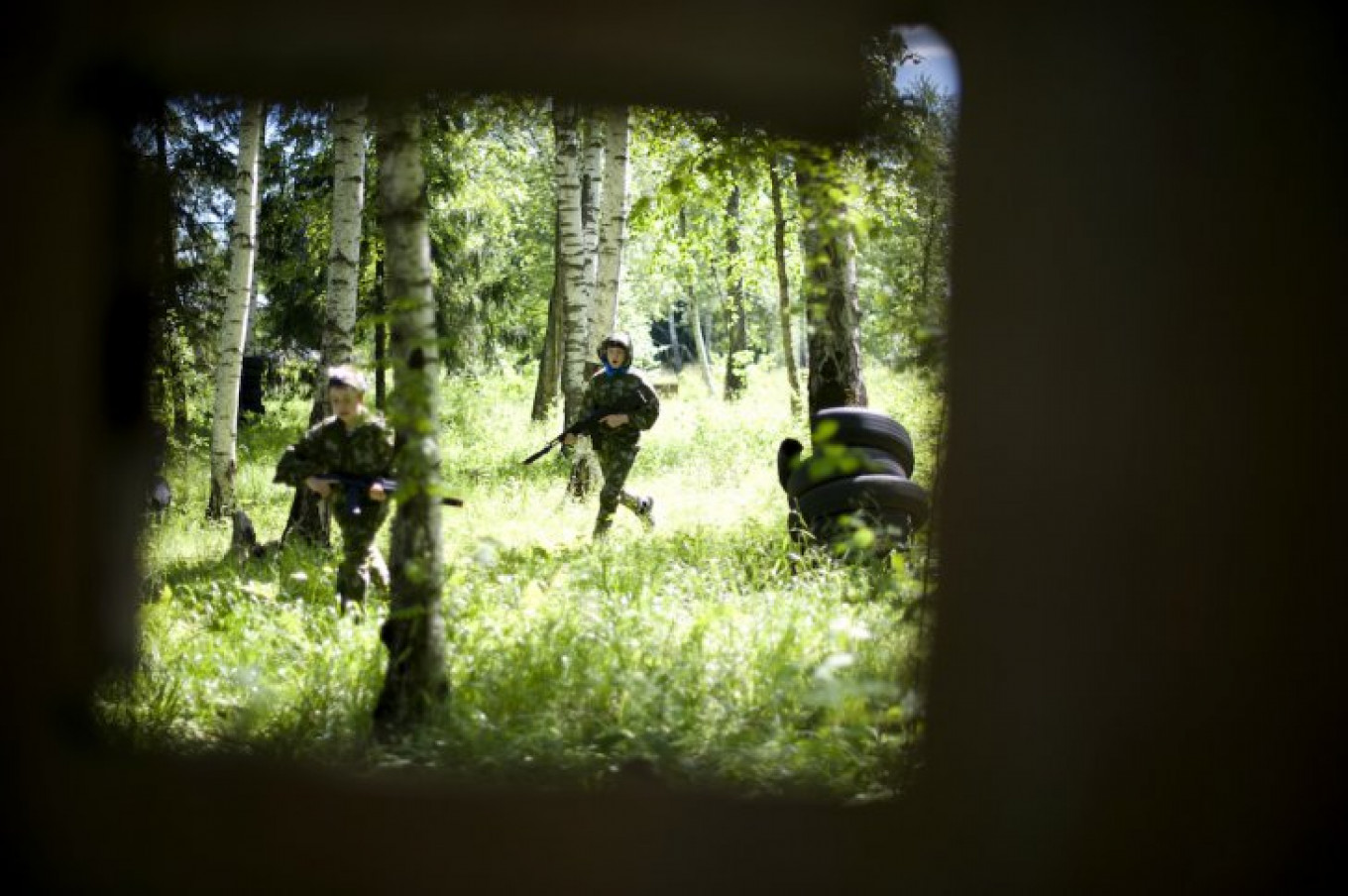
"In order to understand what responsibility is, you need to hold a gun in your hands," says the camp's website. Kids train in shooting and play war games with laser guns alongside former soldiers.
Pascal Dumont / MT
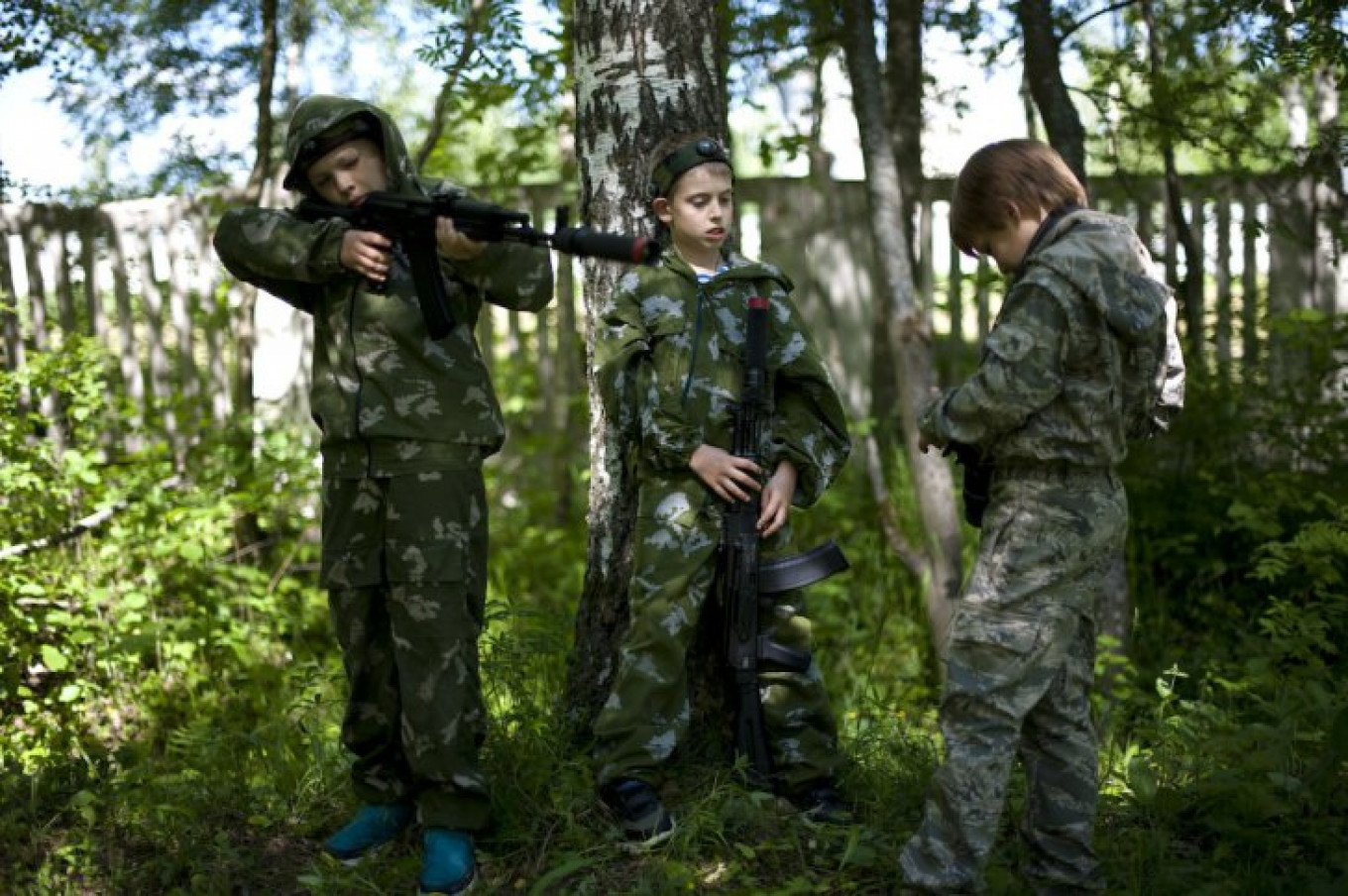
Children also have the opportunity to practice in a supervised shooting range shelter but as one says: "It's boring, I prefer the laser gun."
Pascal Dumont / MT
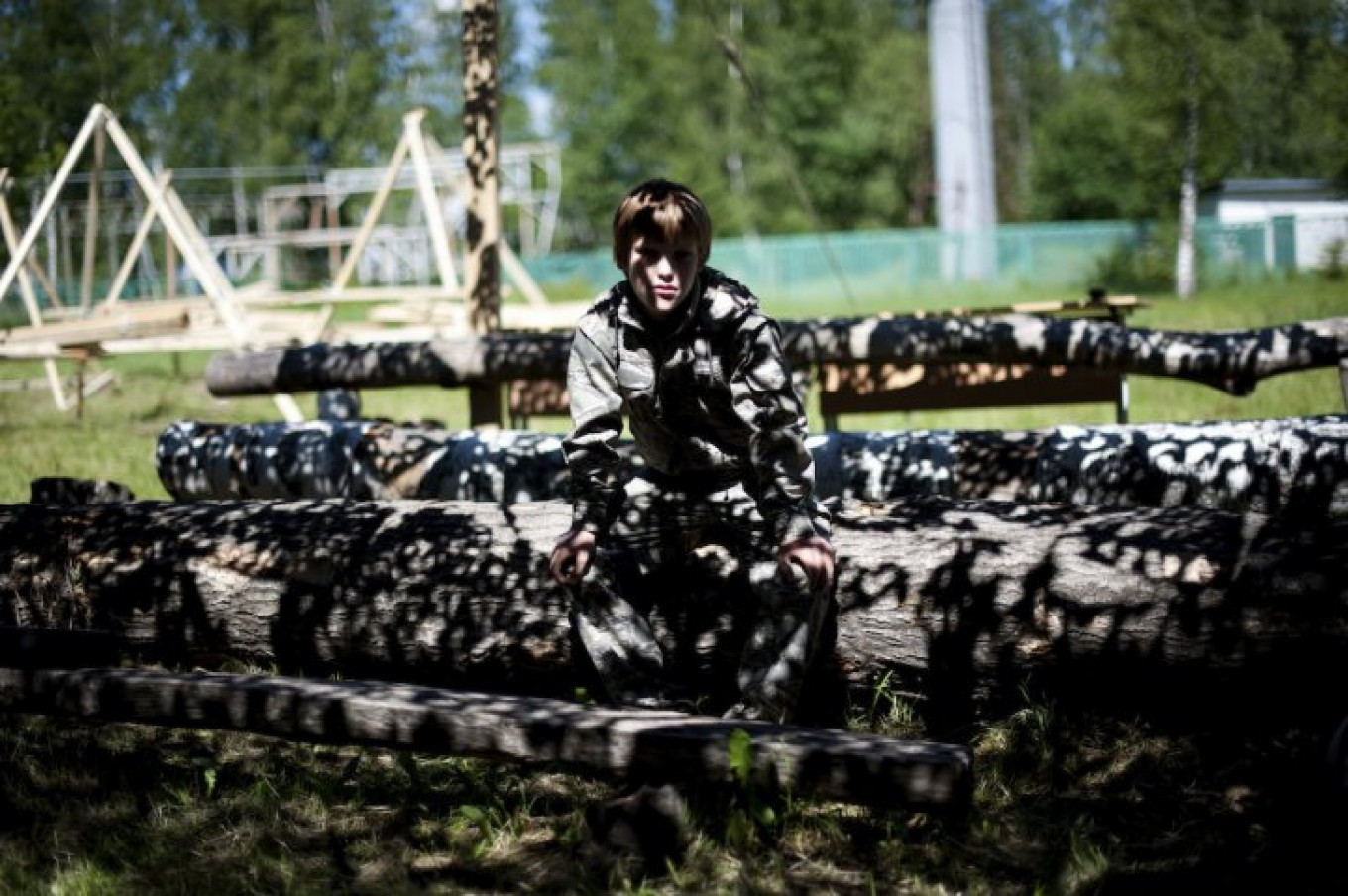
Ivan Omelchuk is embedding for the week as the camp war correspondent. His tasks are to photograph the different activities throughout the day and post on the camp's Facebook page.
Pascal Dumont / MT
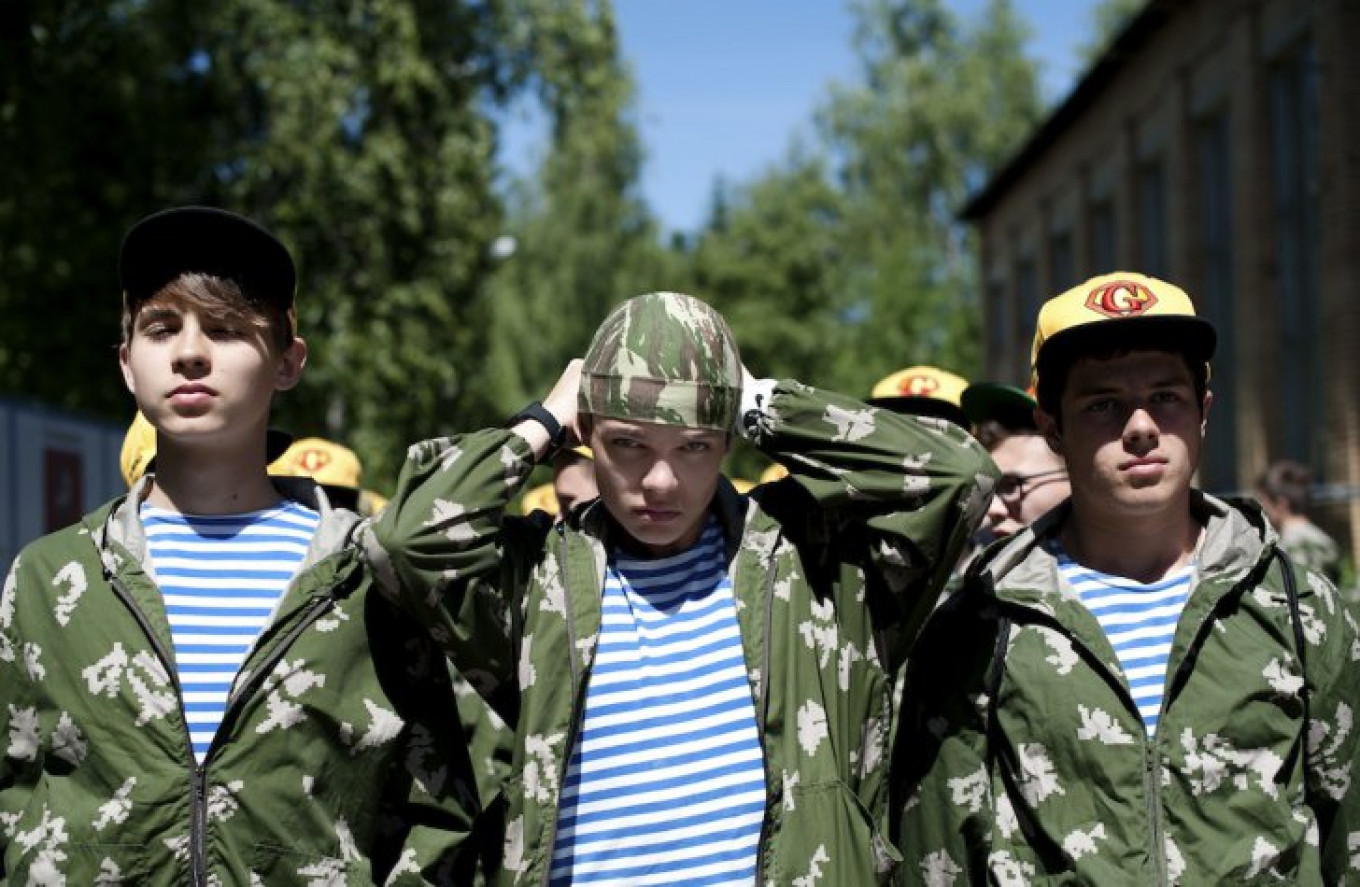
For the organizers of the camp the problem with today's reality is gender education. "Young men seem more like girls these days, and girls like men" explains Yun. "The traditional way for young boys is to grow up in yards and this camp offers them an opportunity to have strong male idols and better understand the masculine education" adds Yun.
Pascal Dumont / MT
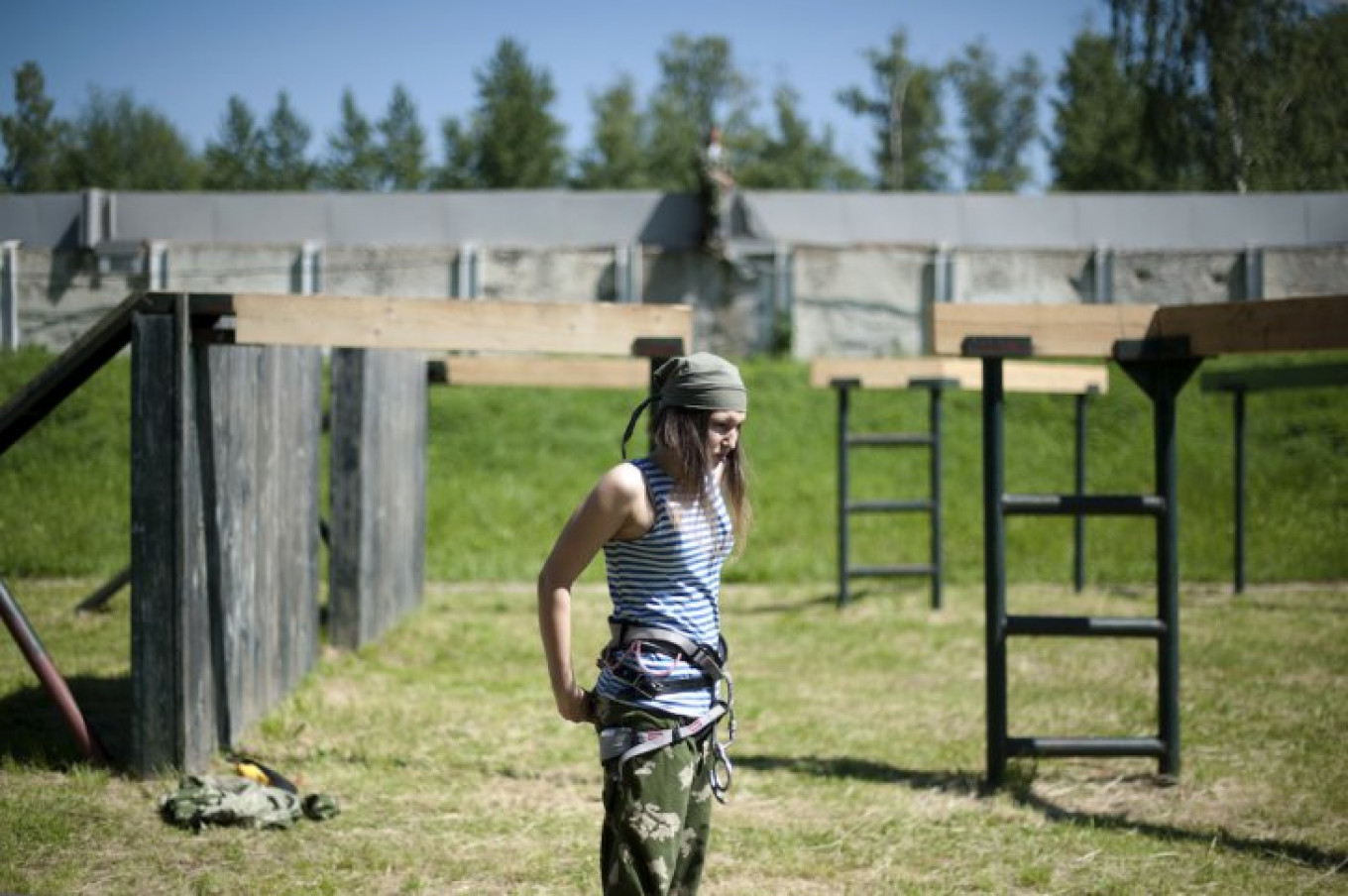
Nastya, 15, is getting ready for a climbing exercise. Although the camp was designed for boys, girls are welcome to enroll.
Pascal Dumont / MT
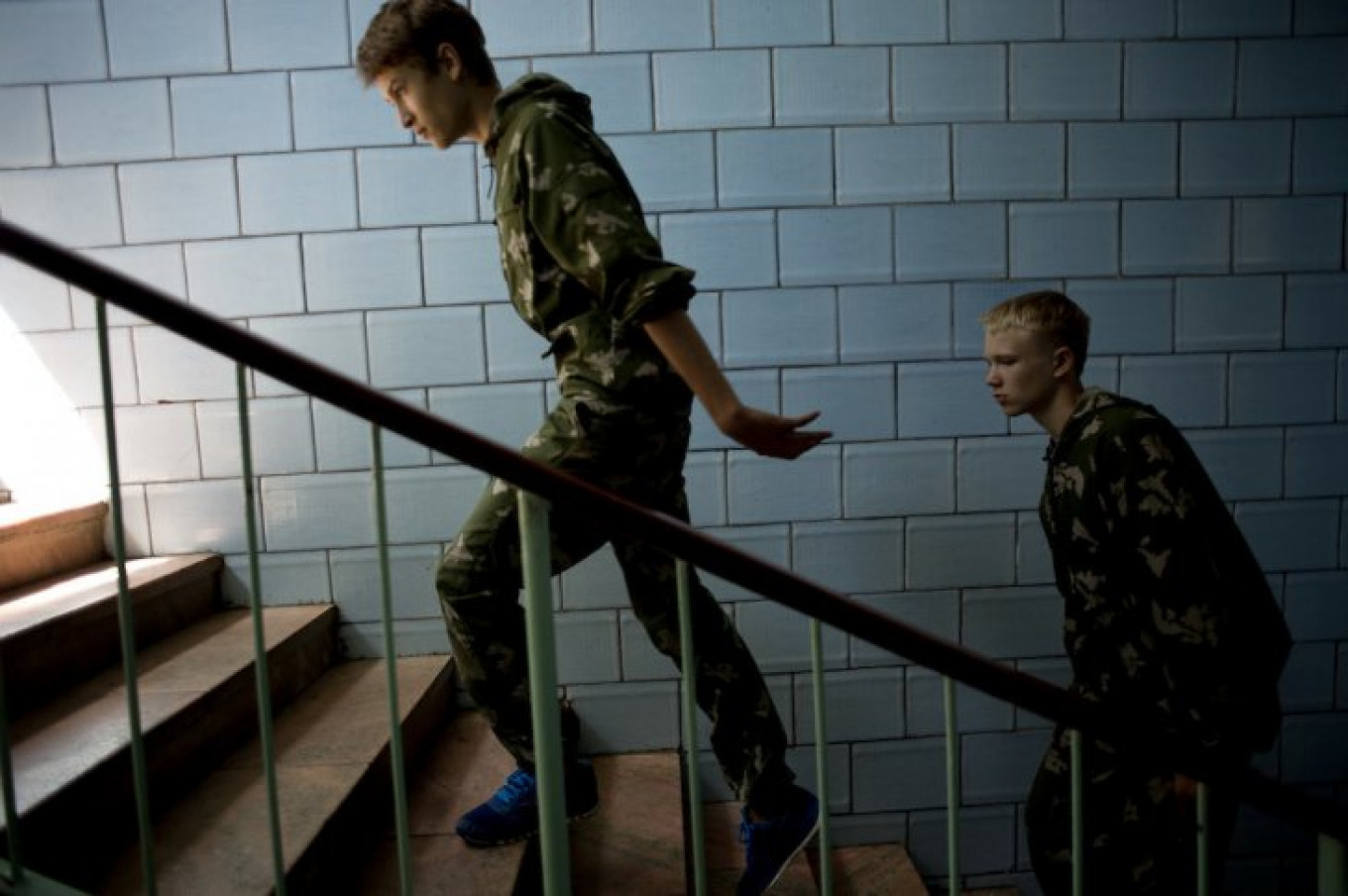
The kids sleep in dormitories in groups of four to a room. Like in the army, before leaving for breakfast the beds must be made very neatly.
Pascal Dumont / MT
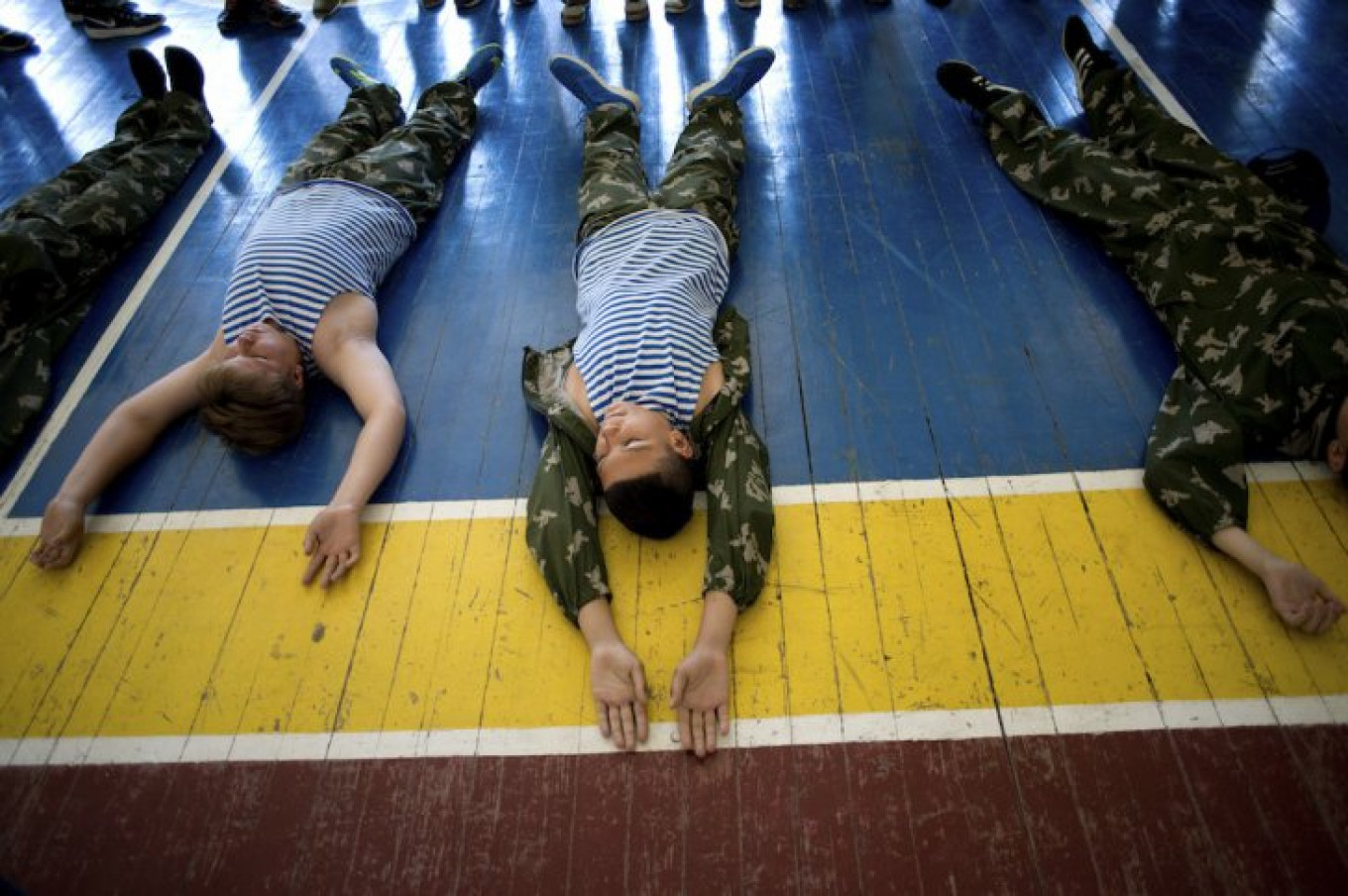
At the end of their second week, boys and girls are evaluated on their performance.
Pascal Dumont / MT
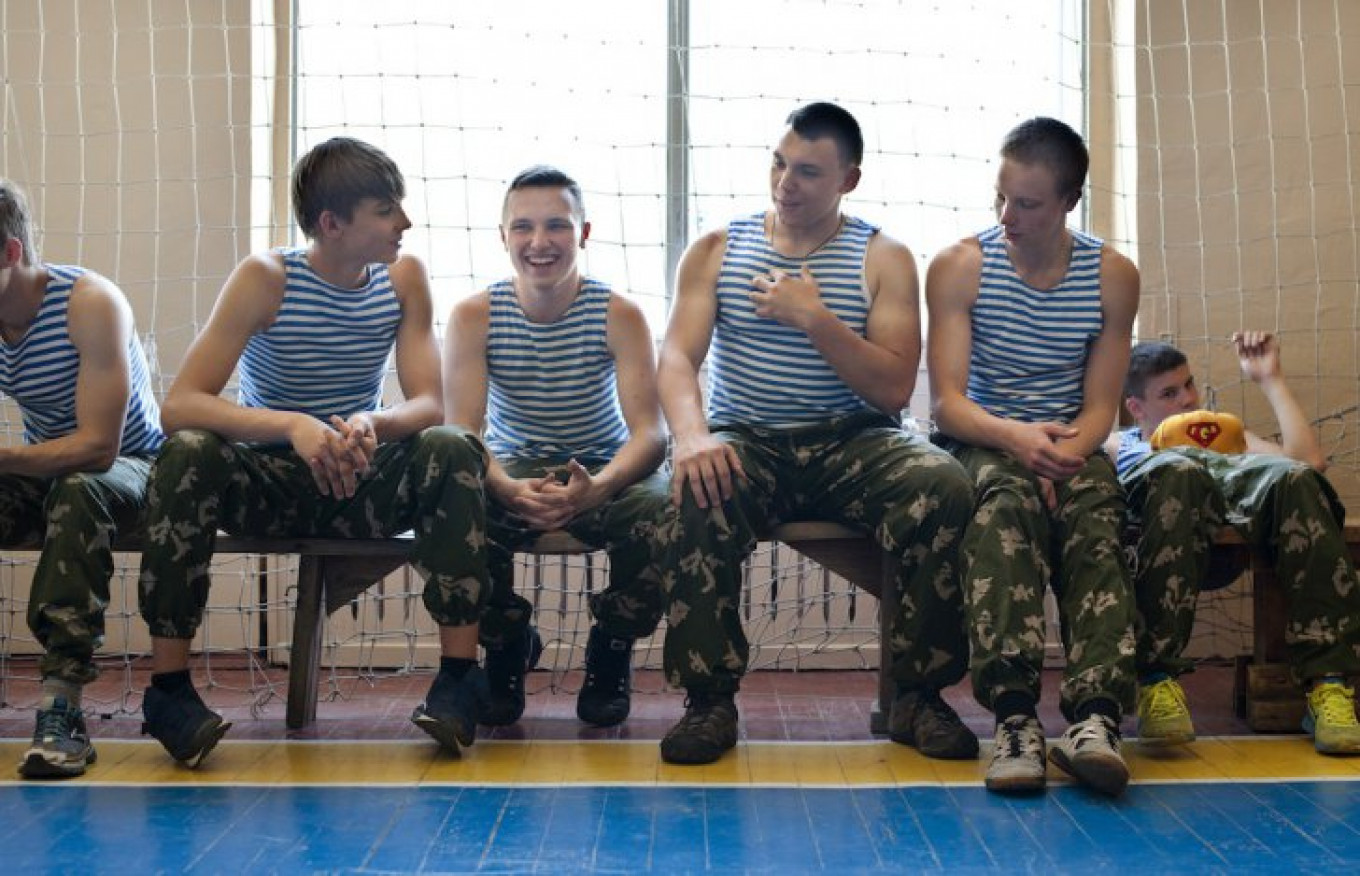
"Brotherhood experience" is one the main goals of the camp according to the organizers.
Pascal Dumont / MT
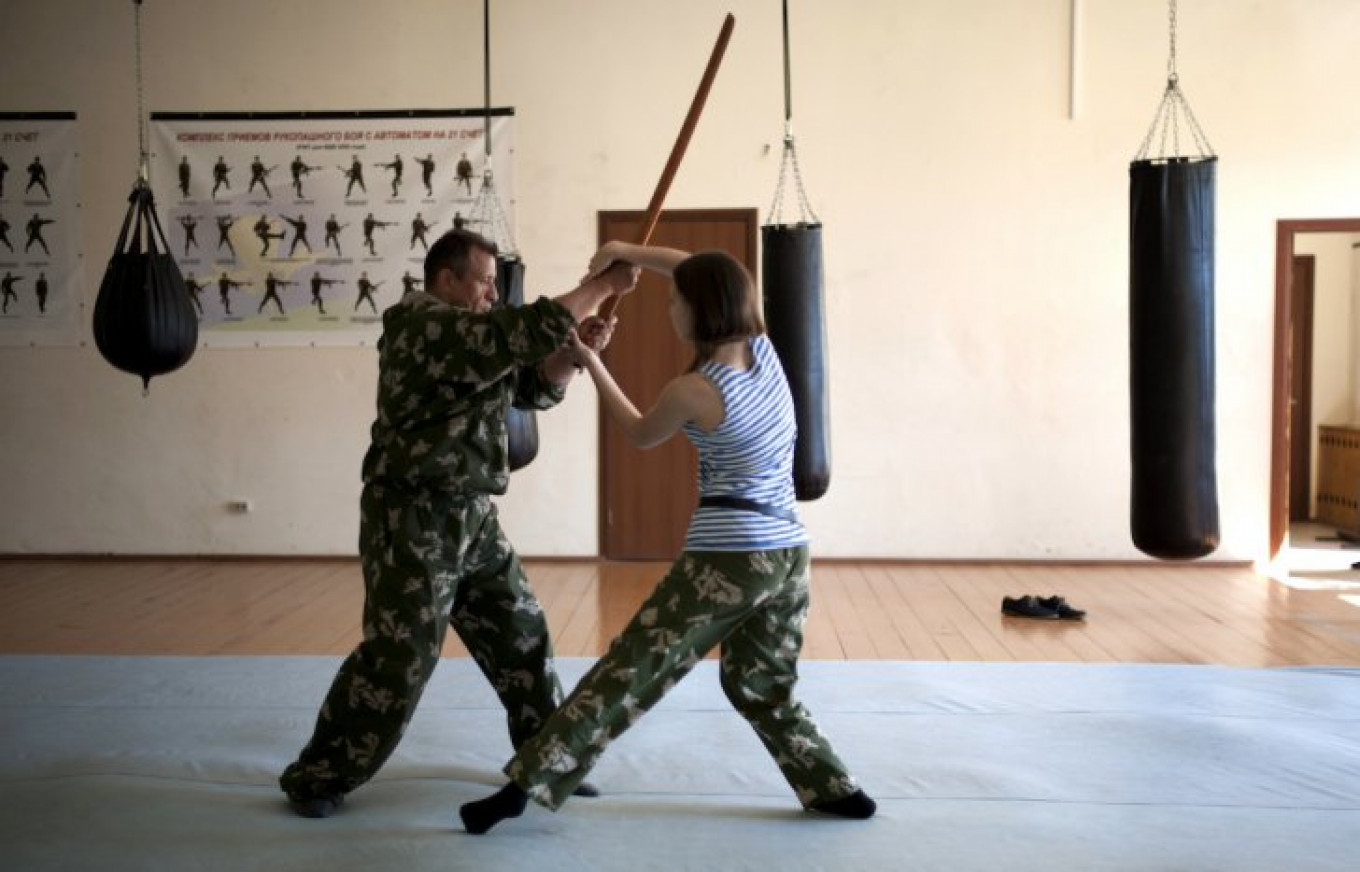
Igor Zorin, 49, who is a former Soviet-Afghan war Spetsnaz veteran, is giving a self-defense course to Nastya.
Pascal Dumont / MT
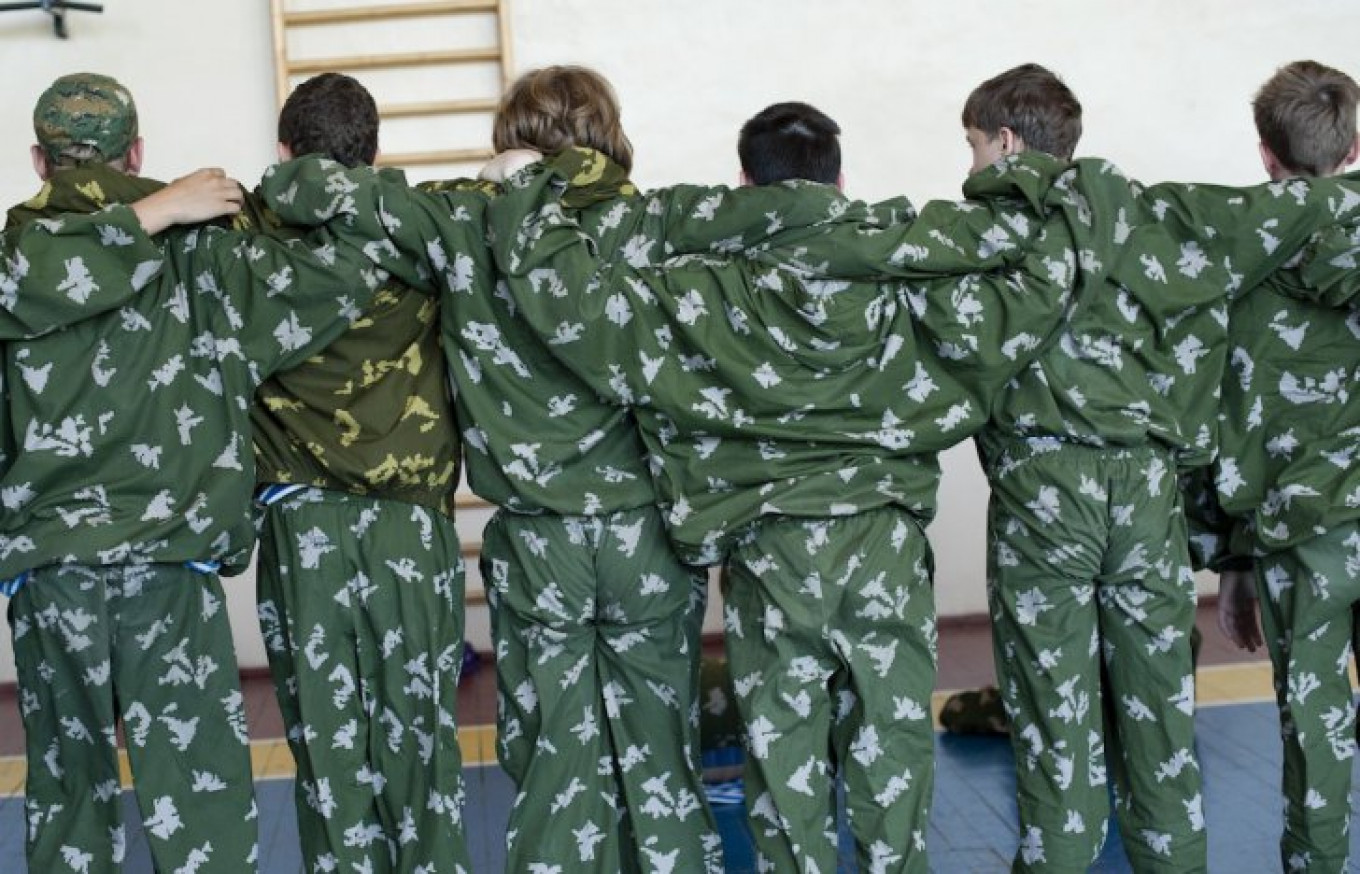
"The military theme is only an instrument of education. We teach the kids to love their motherland, family and to be real men." explains Yun.
Pascal Dumont / MT
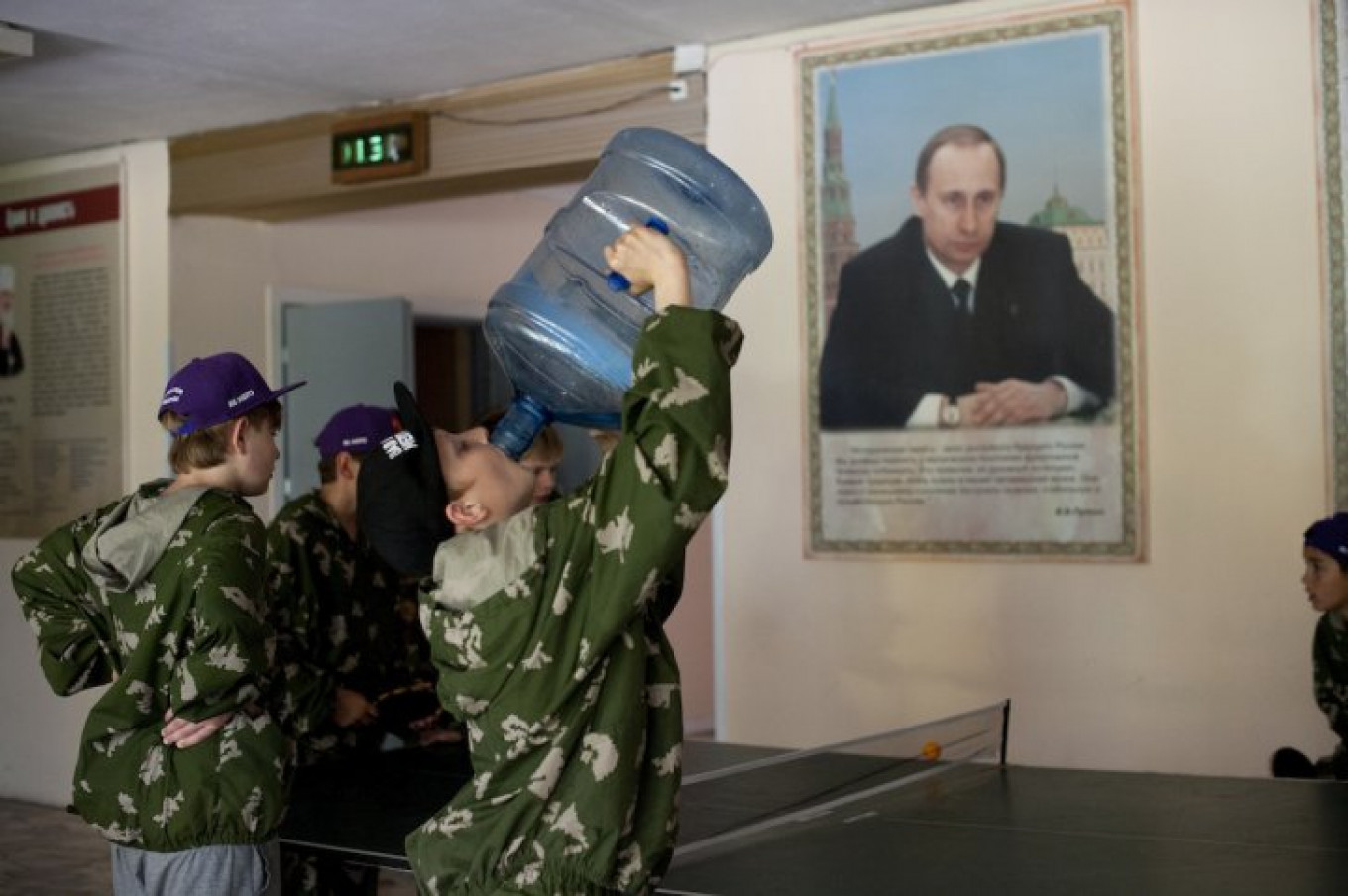
Aside from physical work, the group is asked to take part in real-life political and economic simulations. A computer system is designed to re-enact a government and bank system within the camp.
Pascal Dumont / MT
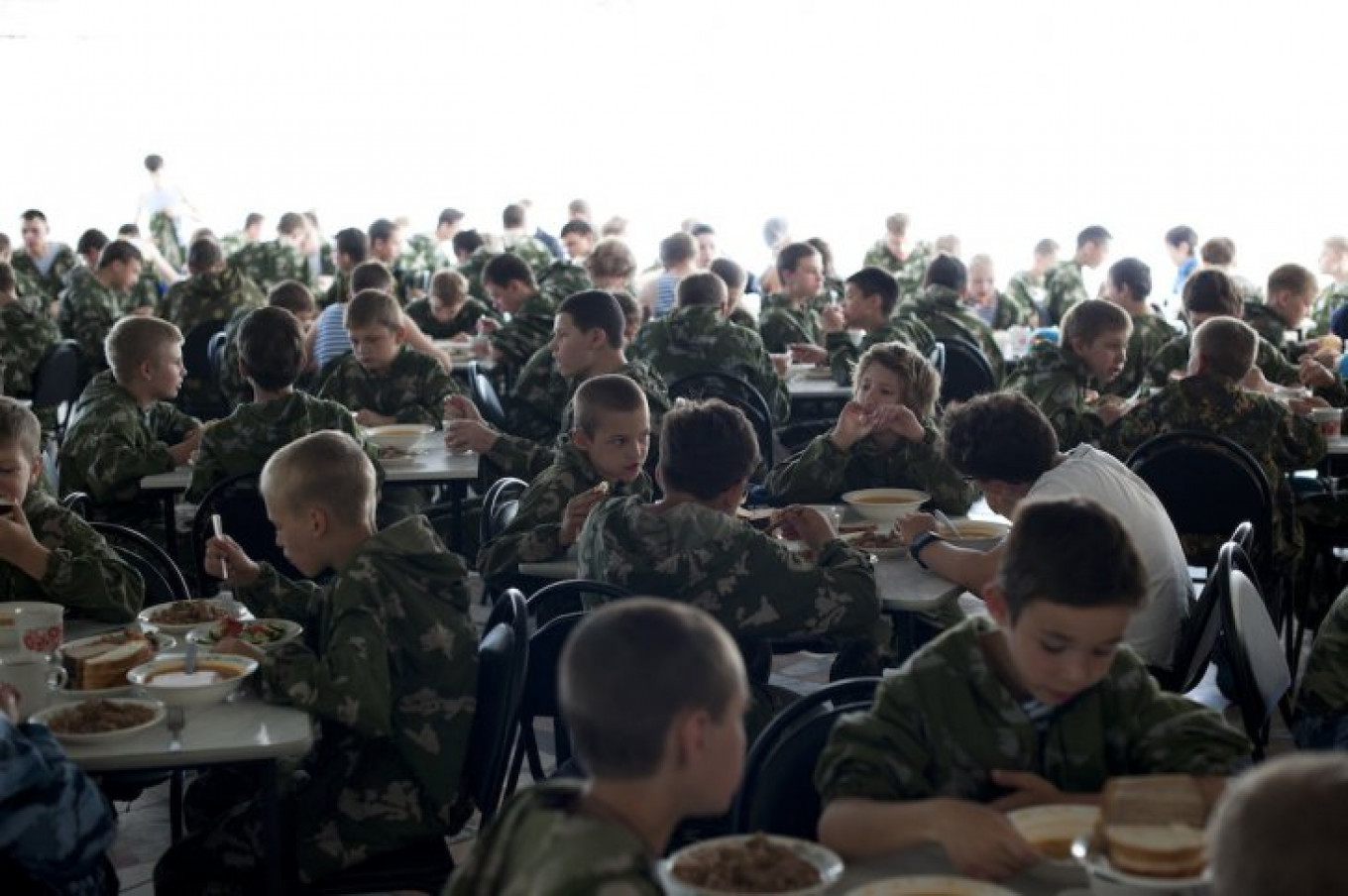
Four meals are served every day and a glass of fermented kefir is given before bedtime.
Pascal Dumont / MT

